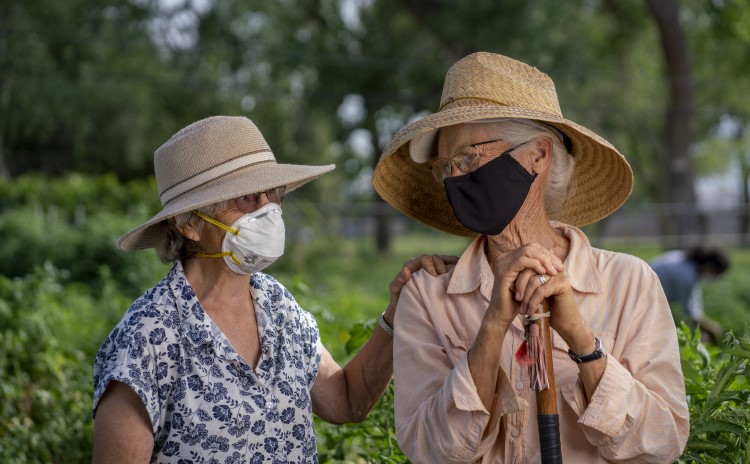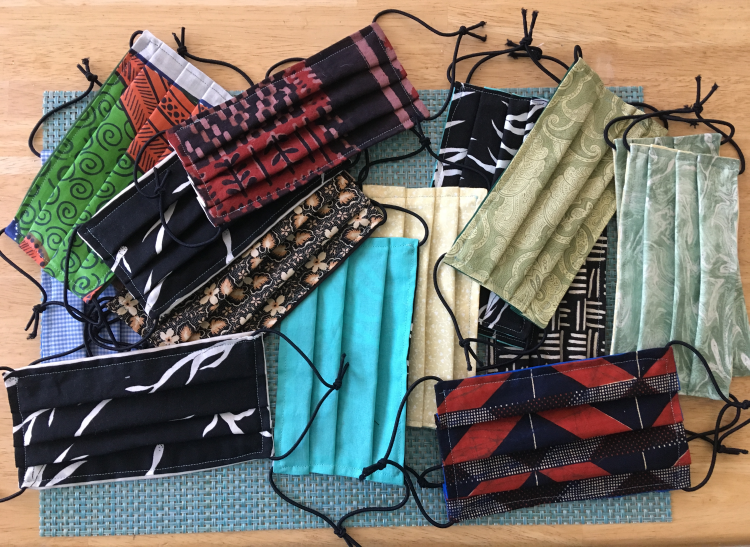
Elena and Maria, Albuquerque women who created a community garden that is part of Farm to Food Bank Core Visual / AFSC
AFSC has been responding to the COVID-19 pandemic in New Mexico by feeding hungry people who need food while supporting small-scale farmers who are struggling to stay afloat like so many other small businesses.
Recently I had the opportunity to learn how other New Mexican women are responding to the pandemic from the Indigenous Lifeways, Women’s Intercultural Center, and the SouthWest Organizing Project. The conversation was called: “At the Heart: Gender Justice and the Response to COVID-19.” The purpose of the meeting was "to provide a broader perspective about the importance of bringing a gender justice lens to pandemic recovery efforts, and why investing in gender justice is key to any long-term social change."
We discussed why women are most impacted by the pandemic. Women make up most of the essential workers, from preschool teachers to grocery cashiers to hospital housekeepers. I was surprised to learn that according to the United Nations, 70% of healthcare workers self-identify as women globally. Yet personal protective equipment is not fitted for women’s bodies, putting them more at risk for infection.
Long-standing inequities are exacerbated, including being paid less than men for equal work and handling more of the child rearing and household work; the UN has estimated that women are doing three times more unpaid work than men during the pandemic. Overall, more women have left their jobs to take care of children and, sadly, the COVID-19 pandemic has increased risks for violence against women not only at home, but in their workplaces and online.
Responding to the pandemic
Women are also at the center of many response efforts. The women in our conversation talked about volunteering at food pantries, sewing thousands of facemasks, creating “learning pods” to assist children with virtual learning, and setting up Mutual Aid efforts. When philanthropic efforts focus on both women’s needs and women’s leadership, it can support social justice for the long term.
There was a lot of grief shared as well as joy by the women who spoke, and I realized how many women I knew had created powerful responses to community needs during the pandemic. I think of all the grandmothers helping with virtual school at home.
I am heartened by the Albuquerque Quakers and Mennonite women who sewed hundreds of facemasks for me to deliver to tribal communities and farmworkers. I marvel at the teachers in my foster daughter’s preschool who sanitize the rooms during nap time, help the children wash their hands thoroughly and get toddlers to wear their masks.
I am grateful to the many women around the world who are responding to COVID 19 with their hearts and hands, creating these networks of care for each other.

Facemasks sewn by Albuquerque Quakers and Mennonites